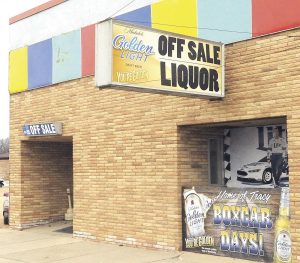
By Seth Schmidt
Changes are on the horizon for the Tracy Municipal Liquor Store.
Mayor Steve Ferrazzano told council members Monday that the city must either move its off-sale liquor store to a Hwy. 14 location, or get out of the liquor business and sell a liquor license to a private business.
“What we are doing now is not working,” the mayor said.
The city’s municipal bar on South Street was closed Oct. 1 last year because the on-sale operation was losing money. The city’s off-sale liquor store has remained open, but financial statements show the off-sale store operation has lost more than $31,000 through the first nine months of 2017.
The city’s liquor store committee is scheduled to meet Jan. 3, with hopes of having a recommendation for the full council to consider by Jan. 8.
Ferrazzano feels the city has only two options: 1) Move the municipal store to Hwy. 14 and invest money into a remodeled facility; 2) Sell an off-sale liquor license to a private party, with the city exiting liquor store operations.
• • •
A memo from Interim City Administrator Shane Daniels lists the former Mediterranean Club building as the preferred site for a city-owned liquor store on Hwy. 14. Under one scenario, Tom Morin, the owner of the building and the adjacent Tracy Subway, would be hired to manage the liquor store. Another option would be to lease the remodeled space and have the city continue its current management model.
If the city decides to get out of the liquor store retailing business, private offers could be solicited for the sale of an off-sale liquor license. The city’s current off-sale liquor license is priced at $1,950, but could be increased. Currently, the Tracy municipal store is the only place in town that is permitted to sell retail beer, spirits and wines.
City leaders are questioning whether the income from the liquor license fee and real estate taxes paid by a private liquor store would be more beneficial to the city compared with continuing the municipal operation.
For more on this article, see this week’s Headlight-Herald.
